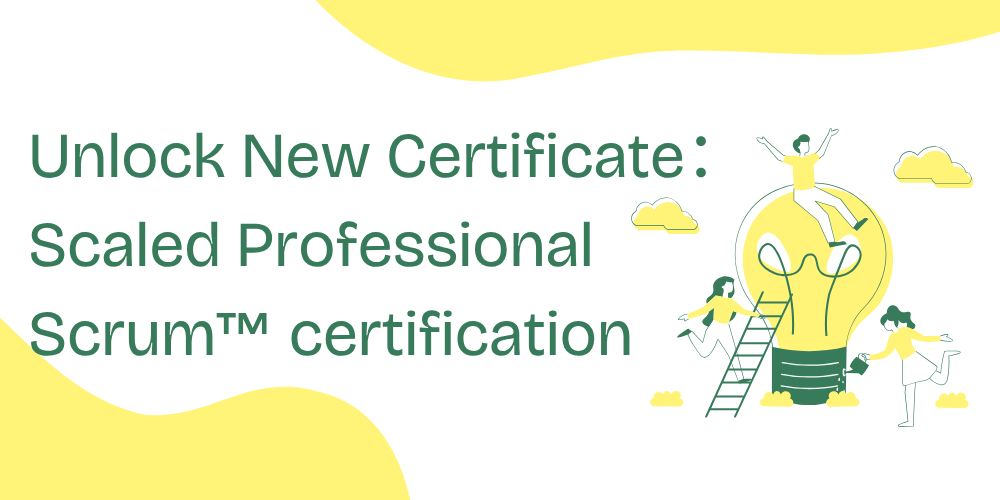TRUSTED BY THE SMARTEST TEAMS IN THE WORLD FOR CERTIFIED CANDIDATES
SPOTO Blogs
Useful learning materials to become certified IT personnel
-
- 681
- SPOTO 2
- 2025-07-17 14:19
-
- 1218
- SPOTO 2
- 2025-07-16 15:40
-
- 696
- SPOTO 2
- 2025-07-16 13:53
-
- 679
- SPOTO
- 2025-07-16 11:17
-
- 800
- SPOTO
- 2025-07-15 15:31
-
- 614
- SPOTO 2
- 2025-07-15 11:50
-
- 661
- SPOTO 2
- 2025-07-15 10:15
-
- 695
- SPOTO 2
- 2025-07-14 11:52
-
- 593
- SPOTO
- 2025-07-14 10:42
TRUSTED BY THE SMARTEST TEAMS IN THE WORLD FOR CERTIFIED CANDIDATES
SPOTO Blogs
Useful learning materials to become certified IT personnel
-
- 681
- SPOTO 2
- 2025-07-17 14:19
Table of Contents1. What is PMI Agile Certified Practitioner certification?2. Benefits of having PMI Agile Certified Practitioner certification3. Details of the PMI Agile Certified Practitioner certification4. What Are the Qualifications to get a PMI Agile Certified Practitioner certification?5. How much does it cost to pass the PMI Agile Certified Practitioner certification?6. Similar certifications of PMI Agile Certified Practitioner certification This article will introduce you to what a PMI Agile Certified Practitioner certification is, the details information of PMI Agile Certified Practitioner certification and the necessary conditions to get a PMI Agile Certified Practitioner certification. By reading this article, you will gain an in-depth understanding of the PMI Agile Certified Practitioner certification. 1. What is PMI Agile Certified Practitioner certification? PMI Agile Certified Practitioner (PMI-ACP® ) is a professional certification launched by the Project Management Institute (PMI) that focuses on agile practices. It aims to verify the comprehensive ability of the holder to apply multiple agile methods in agile project management. It is one of the most influential certifications in the agile field worldwide and is suitable for all practitioners who participate in or lead agile projects and teams. The PMI Agile Certified Practitioner is different from the certification of a single agile framework. It emphasizes "universal practices across agile methods" and focuses on the flexible application of agile principles in different scenarios, rather than mechanically applying a certain framework. The core goals of the PMI Agile Certified Practitioner are to establish unified standards for agile practices, covering core elements such as agile values, teamwork, iterative delivery, and continuous improvement, and to prove that the holder has the ability to choose appropriate agile methods in complex projects and balance agile flexibility and project constraints; to help organizations identify professionals who can effectively promote agile transformation and coordinate agile teams with business goals. 2. Benefits of having PMI Agile Certified Practitioner certification PMI-ACP® is a certification launched by PMI that complements PMP. PMP focuses on integrated management, while PMI-ACP® focuses on agile practices. It has a high degree of global recognition and is highly recognized in multinational companies, IT, Internet, software development and other fields. PMI-ACP® covers a variety of agile methods, proving that the holder can choose the most appropriate practice based on the characteristics of the project rather than being limited to a single framework. With the development of enterprises, the demand for agile talents continues to grow. PMI-ACP® is an important plus for job hunting and promotion, especially in organizations undergoing agile transformation. Certified holders are more likely to obtain management positions, which can help job seekers or existing workers who hope to further develop their work have more career options. This certification has a high degree of practical guidance. The preparation process can systematically sort out agile principles and tools to help practitioners solve practical problems. 3. Details of the PMI Agile Certified Practitioner certification The PMI-ACP® exam lasts a total of 3 hours, with 120 multiple-choice questions. Candidates can choose to take the online computer test at home or at a designated test center through Pearson VUE's OnVUE platform or take the offline written test at an authorized test center in some regions. The exam content is based on PMI's "Agile Practice Guide," covering 7 major knowledge areas, with a total score of 200 points and a passing score of 150 points. "Pass/Fail" will be displayed immediately after the exam, and the detailed score report can be checked on the PMI official website about 5 working days later. The exam focuses on modules such as agile principles and thinking, value-driven delivery, stakeholder participation, team performance, adaptive planning, problem discovery and resolution, and agile practice tools. 4. What Are the Qualifications to get a PMI Agile Certified Practitioner certification? (1) Submit an application Fill out the online application on the PMI official website and upload project experience certificates, training certificates and other materials. The review period is about 5-10 working days. (2) Pass the exam After passing the review, make an appointment for an online or offline exam at the Pearson VUE test center. PMI uses a standard score system and requires a score of 150 or above to pass. (3) Maintain certification The certification is valid for 3 years. Within 3 years, you need to accumulate 30 professional development units and pay a renewal fee of US$150. 5. How much does it cost to pass the PMI Agile Certified Practitioner certification? The initial registration fee for the PMI-ACP® exam is $435 for PMI members and $535 for non-PMI members. To become a PMI member, you need to pay an additional annual fee, which is $139/year globally, and $39/year for student members. Members can enjoy discounts on exam fees and other resource benefits. If you fail the first exam, you can retake it within 1 year of the registration validity period: PMI members will spend $250 and non-PMI members will spend $375. In addition, the PMI-ACP® certification requires candidates to complete at least 21 hours of agile training. The training fee varies depending on the institution, course format and region, usually between $500-1500. The certificate is valid for 3 years. When renewing the certificate, you need to pay a renewal management fee of $150 and accumulate 30 professional development units. 6. Similar certifications of PMI Agile Certified Practitioner certification ICAgile Certified Professional (ICP) Certified ScrumMaster (CSM) SAFe Agilist (SA) AgilePM Foundation -
- 1218
- SPOTO 2
- 2025-07-16 15:40
Table of Contents1. What is PeopleCert PRINCE2 7 Practitioner certification?2. Benefits of having PeopleCert PRINCE2 7 Practitioner certification3. Details of the PeopleCert PRINCE2 7 Practitioner certification4. What Are the Qualifications to get a PeopleCert PRINCE2 7 Practitioner certification?5. Similar certifications of PeopleCert PRINCE2 7 Practitioner certification This article will introduce you to what a PeopleCert PRINCE2 7 Practitioner certification is, the details information of PeopleCert PRINCE2 7 Practitioner certification and the necessary conditions to get a PeopleCert PRINCE2 7 Practitioner certification. By reading this article, you will gain an in-depth understanding of the PeopleCert PRINCE2 7 Practitioner certification. 1. What is PeopleCert PRINCE2 7 Practitioner certification? PeopleCert PRINCE2 7 Practitioner is an advanced project management certification based on the PRINCE2® 7 framework. It is managed and issued by PeopleCert, a leading global certification body, and is one of the world's recognized authoritative qualifications in the field of project management. PRINCE2 is a structured project management methodology originated in the UK and widely used around the world. The Practitioner level is the core certification in the system that verifies "practical application capabilities". PRINCE2 7 is the latest iteration of the PRINCE2 framework. While retaining the core advantages of "product-oriented, structured, and flexible", it incorporates modern project management elements such as agile and digital collaboration. The Practitioner certification focuses on "flexibly applying PRINCE2 7 principles, themes, and processes in actual projects" rather than simply memorizing theories. It emphasizes adjusting the methodology according to the project environment and solving practical problems. 2. Benefits of having PeopleCert PRINCE2 7 Practitioner certification PeopleCert PRINCE2 7 Practitioner certification can prove that the holder can flexibly apply PRINCE2 7 in complex projects, rather than just understanding theoretical knowledge. It is especially recognized by organizations that value structured management. PRINCE2 is globally applicable and is currently widely used in more than 150 countries. It is a common standard for multinational projects and government projects. Practitioner certification is a "pass" to participate in such projects. In the recruitment of project management positions, PRINCE2 Practitioner is often listed as a priority condition, especially in the fields of finance, IT, engineering, etc., where the salary premium is obvious. Having this certificate can improve the professional competitiveness of job applicants and is an effective certificate for job seekers to broaden their career development path. PRINCE2 7 integrates agile practices. Certified holders can master the balancing skills of "structure + flexibility" to adapt to modern project needs. 3. Details of the PeopleCert PRINCE2 7 Practitioner certification The PeopleCert PRINCE2 7 Practitioner certification exam lasts 150 minutes, including 30 minutes of case reading time and 120 minutes of answering time. The question type is a scenario analysis question based on a single case scenario. The exam method can be a closed-book written exam or an online computer-based exam through a PeopleCert authorized exam center. The total score of the exam is 80 points, and 44 points are required to pass. The exam content is strictly based on the three components of the PRINCE2 7 framework: the focus is on the candidate's application ability and flexibility in solving practical problems rather than mechanical application, as well as the candidate's decision-making ability, such as analyzing the project status and choosing the best management strategy in a given case. PeopleCert PRINCE2 7 Practitioner also has a special rule that candidates need to pay attention to. The exam provides an electronic or paper version of the PRINCE2 7 official manual. Candidates need to quickly locate the answer by consulting the manual. The answer must be consistent with the project context in the case, rather than simply reciting the theory. 4. What Are the Qualifications to get a PeopleCert PRINCE2 7 Practitioner certification? (1) Training and preparation: You must first pass the PRINCE2 7 Foundation certification to demonstrate your understanding of the basic concepts of the framework. Although there is no mandatory training requirement, it is recommended to participate in the Practitioner course of PeopleCert authorized training institutions. The course usually lasts 3 to 5 days, and you can master the application logic through case exercises and simulation questions. (2) Pass the certification assessment The exam consists of 8 major questions, which are case-based scenario analysis questions. The duration is 150 minutes. A score of 44 points or above is required to pass. The exam provides the PRINCE2 7 framework reference manual, which tests the ability to "check the manual to solve problems" and is close to the actual work scenario. (3) Certification validity period: PeopleCert PRINCE2 7 Practitioner certification is valid for 5 years from the date of passing. Before expiration, you must pass the renewal exam to maintain your qualification. 5. Similar certifications of PeopleCert PRINCE2 7 Practitioner certification Project Management Professional (PMP) International Project Management Associate Level C (IPMA - C) Certified Associate in Project Management (CAPM) PMI Agile Certified Practitioner (PMI-ACP®) -
- 696
- SPOTO 2
- 2025-07-16 13:53
Table of Contents1. What is Scaled Professional Scrum™ certification?2. Benefits of having Scaled Professional Scrum™ certification3. Details of the Scaled Professional Scrum™ certification4. What Are the Qualifications to get a Scaled Professional Scrum™ certification?5. How much does it cost to pass the Scaled Professional Scrum™ certification?6. Similar certifications of Scaled Professional Scrum™ certification This article will introduce you to what a Scaled Professional Scrum™ certification is, the details information of the Scaled Professional Scrum™ certification and the necessary conditions to get a Scaled Professional Scrum™ certification. By reading this article, you will gain an in-depth understanding of the Scaled Professional Scrum™ certification. 1. What is Scaled Professional Scrum™ certification? Scaled Professional Scrum™ (SPS™) certification is a professional certification launched by the Scrum Organization that focuses on large-scale Scrum practices. It aims to help practitioners master the methods of effectively applying the Scrum framework in a multi-team collaborative environment and solve the collaboration challenges in large-scale complex product development. It is the core certification for scaled agility in the Scrum.org certification system and is suitable for roles that require coordinating multiple Scrum teams, managing cross-team dependencies, and achieving large-scale product delivery. The core goal of the SPS certification is to establish a unified practice standard for scaled Scrum, helping organizations maintain the flexibility and iterative efficiency of Scrum in scenarios beyond a single team. The SPS certification also aims to train practitioners to identify and solve key problems in large-scale agile, and promote organizations to build a mindset, that is, to connect multiple Scrum teams into an organic whole through the "Lean-Agile" principle, rather than simply adding the number of teams. 2. Benefits of having Scaled Professional Scrum™ certification For enterprises, having Scaled Professional Scrum™ certification can improve their large-scale delivery capabilities, help organizations break down "team walls", reduce internal friction through standardized cross-team collaboration processes, and accelerate the iteration and delivery of large products. It also provides managers and coaches with a scaled agile methodology, enabling them to effectively align multi-team goals, balance flexibility and consistency, and strengthen managers' leadership and coordination capabilities. As an official certification of Scrum.org, Scaled Professional Scrum™ certification has a high degree of industry recognition. SPS is an authoritative endorsement in the field of scaled agility, especially in positions that require proof of large-scale Scrum implementation experience. It has strong competitiveness. 3. Details of the Scaled Professional Scrum™ certification The Scaled Professional Scrum™ (SPS) certification exam mainly tests the knowledge and application of scaled Scrum. The exam lasts 60 minutes and consists of multiple-choice questions, including single-choice questions and multiple-choice questions. It aims to assess the candidate's understanding and practical application of the scaled Scrum framework. The exam requires candidates to score 85% or above to pass the certification. The exam content covers the application of scaled agile practices in large organizations, the Nexus framework and its components, coordination and collaboration between multiple teams, scaled product backlog management and sprint planning, Nexus sprint execution and synchronization, and Nexus product backlog optimization technology. 4. What Are the Qualifications to get a Scaled Professional Scrum™ certification? (1) Participate in official training You must first complete the SPS course certified by Scrum.org. The course usually lasts for 2 days. The course teaches the application of the Scrum@Scale framework, scale-up practice tools and transformation experience through case analysis, simulation exercises, etc. (2) Pass the certification assessment After the training, you need to complete an online assessment. The online assessment usually consists of 50 multiple-choice questions and the exam time is 60 minutes. You will pass if the accuracy rate reaches 85% or above. The assessment focuses on the understanding of the scaled Scrum principles, framework components and problem-solving capabilities in actual scenarios. (3) Maintain certification The SPS certification has no validity limit and does not require renewal or annual fees. However, practitioners are advised to continuously update their knowledge through the Scrum.org community and advanced courses. 5. How much does it cost to pass the Scaled Professional Scrum™ certification? According to the Scrum.org website, the cost of the Scaled Professional Scrum™ (SPS) certification is £1,295. This price includes the course materials and two exam opportunities. Candidates can choose to study independently or through enrolling in institutional courses according to their own needs. SPOTO has rich preparation resources and has been certified by professional qualifications. It has received consistent and comprehensive praise from candidates. SPOTO is committed to integrating high-frequency real question banks and expert test-taking strategies to improve the overall pass rate of certification exams, help candidates pass the exams smoothly, and make great contributions to candidates' career advancement. If you are still hesitating whether to enroll in a class, you can try to listen to the public courses launched by SPOTO first, which may benefit you. 6. Similar certifications of Scaled Professional Scrum™ certification Certified Scrum Professional - ScrumMaster (CSP - SM) SAFe Agilist (SA) Scrum@Scale Practitioner Professional Scrum Master (PSM) Professional Scrum Product Owner (PSPO) -
- 679
- SPOTO
- 2025-07-16 11:17
Table of Contents1. Basic information about the career of a network engineer2. What are the salary and career prospects of network engineers?3. Why become a Network engineer? Or are you suitable to be a network engineer?4. What are the necessary requirements to become a network engineer?5. What certification qualifications do network engineer need? 1. Basic information about the career of a network engineer Network engineers are technical professionals responsible for designing, deploying, and continually managing the communications and data infrastructure that organizations rely on to protect corporate networks, systems, and data from cyberattacks, data breaches, and malicious activity. Network engineers are often tasked with maintaining and optimizing an organization's security infrastructure. This includes internal networks, such as intranets and phone systems, as well as external connections through extranets. Their responsibilities also include deploying and validating new protections, developing system enhancement plans, troubleshooting security anomalies, and responding to network incidents. So, what job skills do network engineers need?Network engineers first need to be able to use a variety of network tools to maintain and detect network systems, such as MRTG, Cacti, Nagios, Zabbix, and PRTG. Secondly, good communication skills can help you become a good network engineer, allowing you to better communicate with customers and collaborate at the same time. Finally, find ways to simplify technical terms and explain your work to others in a more understandable way, which can help you connect with colleagues who lack network experience or training. Network engineers are usually required to work a standard week. However, you may be required to be on call outside office hours, on weekends or at night to deal with unexpected network issues. However, as you gain experience and develop your professional skills, you can start your own business or work on freelance contracts, where your working hours will be more flexible. Network engineers often work in private or public organizations with large and complex IT systems that have higher requirements for network security and stability, including banks, Internet companies, and financial institutions.Of course, some network engineers can work from home. 2. What are the salary and career prospects of network engineers? The average annual salary for network engineers in the United States is $109,040. That works out to about $52.42 per hour. This equates to $2,096 per week or $9,086 per month. It’s worth noting that network engineers’ salaries vary based on skill level, location, and years of experience, and there may be many opportunities for advancement and pay increases. Employment forecasts show that network engineers are in high demand and that this occupation, along with other closely related occupations, will grow by about 5% over the next decade. Network engineers continue to be in high demand worldwide. The U.S. Bureau of Labor Statistics predicts that there will be 16,400 job openings per year for network and system administrators through 2033, primarily to replace retirees. At the same time, demand is growing in markets such as the United Kingdom and Australia due to digital transformation and the popularity of cloud computing, and skilled engineers with up-to-date certifications remain highly sought after. 3. Why become a Network engineer? Or are you suitable to be a network engineer? According to relevant reports, the global cybersecurity talent gap is as high as 4 million, which means that network engineers and network workers in related fields have higher salaries and broad employment prospects.At the same time, network engineers can also be further upgraded to senior network engineers, network engineering managers or core network staff. The profession has upward potential, which undoubtedly provides a clear and feasible career advancement path for those who are eager to achieve a career leap.Finally, because the cybersecurity field is a rapidly changing one with new threats and attack techniques emerging all the time, if you enjoy solving complex problems, analyzing attack patterns, and designing defense strategies, this career will help you push your limits. 4. What are the necessary requirements to become a network engineer? First of all, network engineers are technical personnel. You need to have a bachelor's degree in a related field, such as computer science, information engineering, and computer network engineering. Students of these majors will learn the skills needed for network engineers during college. However, having a bachelor's degree alone is necessary but not sufficient. The profession of network engineer also attaches great importance to whether the applicant has relevant practical experience. Therefore, your internship or formal work in the field of network for more than one year can provide great help for your application. Finally, since the technology of computer networks is iterating very quickly, you need to have the ability to keep up with the development of technology and constantly learn and improve your skills. Obtaining relevant professional certifications and regularly cultivating professional skills are both good ways. 5. What certification qualifications do network engineer need? CCNP Service Provider certification is one of the most recognized certifications in the network engineer field, which can help you enter the network engineer profession. This certification Validate your expertise in implementing core service provider network technologies, including architecture, services, networking, automation, and more. Be the next choice for a tech role in service provider networks with a Cisco Certified Network Professional (CCNP) Service Provider certification. -
- 800
- SPOTO
- 2025-07-15 15:31
Table of Contents1. What is a network architects ? And what does their job involve?2. Job prospects and salaries for network architects3. What kind of person is suitable to be a Network architect?4. What certification qualifications do network architect need? 1. What is a network architects ? And what does their job involve? Network architects are responsible for conceiving and planning complex network systems, making key decisions on network architecture adjustments and network infrastructure upgrades, and working with various stakeholders to ensure that network design is aligned with business goals.Network architects have the opportunity to collaborate across sectors and industries. Network architects usually work in the IT department of an enterprise or in the communications industry. They are often responsible for creating and developing the framework design of the organization's communication network system. During this process, network architects need to communicate and work closely with management and teams in order to understand the diverce needs of each department. Furthermore, network security is very important to enterprises, as it affects their network assets and digital assets. Therefore, network architect engineers are needed to maintain, troubleshoot and test the performance, stability and security of an organization's network systems, and to provide timely feedback and propose solutions when encountering major problems and crises. In addition, network architects also need to understand the big picture of the organization's operational network and how the network achieves its goals. For example, in a global e-commerce company, they need to design a network that can handle high traffic during the shopping season, ensure secure data transmission of customer transactions, and support seamless communication between different departments and offices around the world.Besides, as enterprises' requirements for informatization and digitalization continue to increase, the demand for updating digital products and infrastructure is also increasing.Therefore, it is necessary for network architects to understand the latest technologies so that they can update their company's network infrastructure and design better systems management methods. Now that we know the job content of network framework engineers, what skills do they need to use in their daily work? How can they be better qualified for the job? The job skills that network architects need to master are divided into two aspects: professional skills that are strongly related to the profession and general soft skills. First, network framework engineers need to be proficient in various network technologies, which are very important professional skills for the design and maintenance of network frameworks. This includes the need to be proficient in network security, virtualization, network tools, storage engineering, and wide area network (WAN) and other related network skills, and also need to have an understanding and knowledge of cloud computing platforms such as AWS, Azure, and Google Cloud. Secondly, in terms of soft skills, because senior network architects often need to explain technical concepts to non-technical stakeholders and solve network problems, strong analytical skills, good communication skills, and problem-solving skills are all indispensable professional skills. 2. Job prospects and salaries for network architects The job outlook for network architects is very positive, and the demand for them is rising across all industries, especially with the widespread application and continued development of digital transformation. On the one hand, the job market demand for network architects is expected to grow by 13% between 2023 and 2033, which is much faster than the average for all occupations. On the other hand, there are many job opportunities for network architects, whether it is a financial institution looking to upgrade its network to improve security and speed up transaction processing, or a healthcare provider aiming to improve telemedicine services, senior network architects are needed to design the underlying network infrastructure. Network architects can earn as high as $93.75 an hour and as low as $21.15 an hour, but most network architects in the U.S. currently make between $62.26 and $83.41 an hour. Network architects have many opportunities for advancement and salary increases, depending on skill level, location, and years of experience. 3. What kind of person is suitable to be a Network architect? The above article introduces the basic content of the network architect's career. Are you also curious about whether you are suitable to become a network architect ? Don't worry, this part will answer your inner doubts. Through sorting out recruitment advertisements and a large amount of statistical data, We found that although each network architect has different personalities, family backgrounds and work content. However, because the work content often requires them to have strong research ability, logical analysis ability and abstract understanding ability . The common characteristics of network architects are curiosity, organization, rationality, analytical skills, and strong logic. If you are rigorous, rational, have the ability to solve network problems, and are passionate about working in the network field, then network architect is a good career choice! 4. What certification qualifications do network architect need? Frist, If you want to become a network architect, a bachelor's degree in computer science, information systems, engineering, or a related field is a good idea, and this career often requires that job seekers meet that level of education. Second, Obtaining a highly recognized professional certification can greatly enhance your competitiveness in the workplace. CCIE Data Center certification is one of the most important professional certifications. This certification can demonstrate advanced skills to plan, design, deploy, operate, and optimize complex data center networks. It fully demonstrates your professional ability and qualities to become a network architect. -
- 614
- SPOTO 2
- 2025-07-15 11:50
Table of Contents1. What is Certified Business Analysis Professional certification?2. Benefits of having Certified Business Analysis Professional certification3. Details of the Certified Business Analysis Professional certification4. What Are the Qualifications to get a Certified Business Analysis Professional certification?5. Similar certifications of Certified Business Analysis Professional certification This article will introduce you to what a Certified Business Analysis Professional certification is, the details information of Certified Business Analysis Professional certification and the necessary conditions to get a Certified Business Analysis Professional certification. By reading this article, you will gain an in-depth understanding of the Certified Business Analysis Professional certification. 1. What is Certified Business Analysis Professional certification? Certified Business Analysis Professional (CBAP) is a globally recognized advanced business analysis certification launched by the International Institute of Business Analysis (IIBA) to recognize practitioners with rich business analysis experience and professional capabilities. It is one of the most authoritative certifications in the field of business analysis and is suitable for professionals who are responsible for demand planning, process optimization, strategic analysis, etc. in complex business environments. The core goal of CBAP certification is to establish professional standards in the field of business analysis, standardize the skills and knowledge system of practitioners, prove that the holder has the ability to apply business analysis tools, techniques and frameworks in complex projects and business scenarios, and enhance the professional recognition of business analysis practitioners, helping them to assume higher levels of analysis responsibilities in the enterprise. 2. Benefits of having Certified Business Analysis Professional certification As a globally recognized advanced certification, Certified Business Analysis Professional certification is a "hard currency" in job seekers' resumes and a secret to success for employed workers on their career advancement path. It has a significant advantage in multinational companies, large projects or high-end job recruitment. CBAP holders can join the IIBA global community, meet industry experts and peers, and obtain more career development resources. Through preparation for the exam, practitioners can systematically master the methodology in the BABOK Guide and improve analysis efficiency and decision-making quality in complex business scenarios. Certified Business Analysis Professional certification is not only proof of professional ability, but also an important stepping stone for career advancement. Certified Business Analysis Professional certification is mainly aimed at senior practitioners with many years of business analysis experience, such as business analysts with many years of business analysis related work experience, team leaders, strategic analysts, and most professionals who want to be promoted from junior or mid-level analysts to senior positions. 3. Details of the Certified Business Analysis Professional certification The Certified Business Analysis Professional certification exam is a computer-based exam that consists of 120 multiple-choice questions and lasts 3.5 hours. The passing score set by IIBA must be met. The specific score is not public and is evaluated based on the correctness rate. The exam content is strictly based on the BABOK Guide and covers tools, techniques, and practical applications in 6 major knowledge areas. Candidates must complete the exam appointment within 1 year after the application is approved. If you are an IIBA member, the exam fee is US$395, and if you are not, it is US$595. Candidates can choose online or offline exams through Pearson VUE test centers. 4. What Are the Qualifications to get a Certified Business Analysis Professional certification? (1) Submit an application Fill out an online application on the IIBA official website, upload work experience certificates, PDU records, letters of recommendation and other materials, and the application fee is US$550. (2) Application review IIBA will review the application materials (about 4-6 weeks). If the materials are incomplete or do not meet the requirements, they will be required to be supplemented and revised. (3) Pass the exam After the application is passed, the exam appointment must be completed within 1 year. The exam fee is US$395 (IIBA members) or US$595 (non-members). You can choose to take the exam online or offline through the Pearson VUE test center. (4) Maintain certification The CBAP certification is valid for 3 years. Within 3 years, you need to accumulate 60 professional development hours and pay the maintenance fee to renew it. What makes the Certified Business Analysis Professional certification special is that IIBA has strict experience and education requirements for CBAP applications. It requires job seekers to have at least 7,500 hours of professional experience in business analysis, which means a full-time worker needs to spend at least 4.5 years. Among them, the experience must cover at least 4 of the 6 knowledge areas defined in IIBA's "BABOK Guide", and applicants must complete at least 35 hours of business analysis-related professional development courses within 4 years before applying, but this is not the most complicated part. In addition to learning and work experience, applicants also need to provide 2 letters of recommendation: 1 from a professional referee such as your supervisor or client to prove your business analysis work experience, and 1 from an IIBA member or CBAP/CCBA certificate holder, but if the applicant is an IIBA member, 1 letter can be waived. You must become an IIBA member when applying for CBAP, and non-members cannot apply. 5. Similar certifications of Certified Business Analysis Professional certification IIBA's CCBA (Certified Capability in Business Analysis) PMI-PBA (PMI Professional in Business Analysis) ECBA (Entry Certificate in Business Analysis) IREB's CPRE (Certified Professional for Requirements Engineering) Salesforce Certified Business Analyst -
- 661
- SPOTO 2
- 2025-07-15 10:15
Table of Contents1. What is Professional Scrum with User Experience™ certification?2. Benefits of having a Professional Scrum with User Experience™ certification3. Details of the Professional Scrum with User Experience™ certification4. What Are the Qualifications to get a Professional Scrum with User Experience™ certification?5. How much does it cost to pass the Professional Scrum with User Experience™?6. Similar certifications of Professional Scrum with User Experience™ certification This article will introduce you to what a Professional Scrum with User Experience™ (PSUI) certification is, the detailed information of the Professional Scrum with User Experience™ certification and the necessary conditions to get a Professional Scrum with User Experience™ certification. By reading this article, you will gain an in-depth understanding of the Professional Scrum with User Experience™ certification. 1. What is Professional Scrum with User Experience™ certification? Professional Scrum with User Experience™ (PSUI) certification is a professional certification launched by Scrum.org. It aims to help Scrum teams and related practitioners master how to effectively combine user experience (UX) practices with the Scrum framework to deliver products that better meet user needs and have greater value. The core goal of PSU certification is to solve the challenges of integrating UX and agile development that Scrum teams may encounter in actual work, including how to incorporate UX activities such as user research and testing into the fast-iteration Scrum process; how to ensure the consistency between product functionality and user experience; and how to better integrate UX practitioners into the Scrum team and participate in demand analysis, iteration planning and other links. 2. Benefits of having a Professional Scrum with User Experience™ certification The PSUI professional certificate can prove the job seeker's professional ability to apply UX practices in an agile environment, which has a positive effect on career development, job hunting and promotion. Having this certificate can also improve team collaboration efficiency, help Scrum teams clarify the role of UX activities in iterations, reduce process conflicts, and make design and development more smoothly connected. Having this certificate can also improve team collaboration efficiency, help Scrum teams clarify the role of UX activities in iterations, reduce process conflicts, and make design and development more smoothly connected. In addition, it can also effectively enhance product competitiveness to ensure that products can be delivered quickly while improving user satisfaction and retention through user experience design. This certification is suitable for all roles that participate in Scrum teamwork and focus on user experience. Whether you are a Scrum team member, a UX designer, a user researcher, a product designer, a product owner, or a product manager who wants to improve the user experience of the product, having this certificate can support your further development in your career path. 3. Details of the Professional Scrum with User Experience™ certification The Professional Scrum with User Experience™ (PSUI) exam consists of 60 questions and takes 60 minutes. The questions include single-choice questions, multiple-choice questions, and true-or-false questions. The full score is 60 points, and you need to score 51 points (85% or above) to pass the exam. The exam content mainly focuses on understanding and applying the Scrum framework, people and team development, agile product management and supplementary practices. 4. What Are the Qualifications to get a Professional Scrum with User Experience™ certification? (1) Attend official training First, you must complete the PSUI course certified by Scrum.org. This process usually takes 1-2 days. The course content covers the integration strategy of UX and Scrum, practical tools, case analysis, etc. (2) Pass the certification exam Second, after the training, you need to take an online exam. The exam content includes 50 multiple-choice questions and the exam time is 60 minutes. The correct rate must reach 85% or above to pass. The exam focuses on the understanding of the combination of UX and Scrum, the problem-solving ability in actual scenarios, etc. (3) Maintain certification Currently, PSUI certification has no validity limit and is valid for life after passing. However, it is recommended that practitioners continue to participate in Scrum.org's community activities or advanced courses to keep their knowledge updated. 5. How much does it cost to pass the Professional Scrum with User Experience™? The cost of passing the Professional Scrum with User Experience™ (PSUI) certification exam is $200 per exam. This certification has no validity limit and no annual fee is required. You can choose your own way to pass this certification exam, but it is undeniable that it is much more efficient to directly sign up for the SPOTO course than to collect and read materials on your own. SPOTO not only has experts with rich professional practice experience to teach, but also provides course materials and first-hand information to help candidates save the time and cost spent on the certification to the greatest extent. 6. Similar certifications of Professional Scrum with User Experience™ certification Professional Scrum Master (PSM) Professional Scrum with Kanban (PSK) Certified Scrum Master (CSM) Certified Scrum Product Owner (CSPO) Scaled Professional Scrum (SPS) -
- 695
- SPOTO 2
- 2025-07-14 11:52
Table of Contents1. What is a Release Engineer?2. How much does a Release Engineer Make?3. Responsibilities of a Release Engineer4. What Are the Qualifications to Become a Release Engineer?5. Similar Occupations of Release Engineer This article will introduce you to what a Release Engineer is, the career information of a Release Engineer and the necessary conditions to become a Release Engineer. By reading this article, you will gain an in-depth understanding of the profession of Release Engineer. 1. What is a Release Engineer? Release Engineers are professionals responsible for the management of the entire process of software products from development to deployment. They are key roles in the software development and operation and maintenance teams. Their core responsibilities are to ensure that software versions can be efficiently, stably and reliably delivered to the production environment. At the same time, they coordinate the collaboration of multiple teams, such as development, testing, and operation and maintenance, and optimize the release process to improve delivery quality and efficiency. They focus on automating, managing and optimizing the software release process. They connect the development, testing and operation and maintenance links, and are the core executors to ensure continuous software delivery. 2. How much does a Release Engineer Make? According to Zippia, Release Engineers in first-tier cities can earn 20K-50K per month, and an annual salary of 24W-60W yuan. Those in second-tier cities can earn about 8K-15K per month, and an annual salary of 10W-18W yuan. The salary of Release Engineers who are new to the industry is relatively low, but as their years of work increase, the salary of mid- to senior-level Release Engineers who have mastered proficient technology will increase significantly. The salary of Release Engineers will also vary to varying degrees depending on the type and size of the company. For example, a large company recruited a Release Engineer for a foreign client with a monthly salary of 16K-20K, requiring him to have oral English communication skills and relevant technical experience. In contrast, the salary level of Release Engineers in small and medium-sized enterprises may be relatively low, but it also varies depending on the specific business and financial situation. The salary of Release Engineers in some small and medium-sized enterprises may be around 8K-15K per month. In addition, the salary of a Release Engineer is also largely affected by the industry-recognized certificates held by job seekers. The more recognized certificates a job seeker has, the more likely he or she is to get a higher salary. 3. Responsibilities of a Release Engineer The core responsibilities of Release Engineer include designing and optimizing the release process, designing a standardized software release process, including version control, building, testing, and deployment, ensuring that each step is traceable and repeatable, reducing manual operations, introducing automated tools to shorten the release cycle, and reducing human errors. Coordinate the development team to resolve code conflicts, maintain the standardization of the code base, avoid release risks caused by version confusion, build and maintain the automated build system, and use scripts or tools to automatically compile, package, and build the code. It is also their responsibility to generate deployable software packages. Release Engineer also serves as a "bridge" between the development, testing, and operation teams to synchronize release progress, coordinate and solve cross-team problems, clarify the responsibilities of each team in the release, and ensure that the release nodes are clear and controllable. 4. What Are the Qualifications to Become a Release Engineer? (1) Obtain a Bachelor's Degree Usually a bachelor's degree in a related field is required, preferably a degree in software management, artificial intelligence and computer-related majors. These majors can help students better understand the principles of computer hardware and software, understand the principles of programming and computer operation, and lay a solid foundation for future work. (2) Core Technical Skills To become a Release Engineer, you need to master a variety of technical tools and concepts to manage the end-to-end release process. You need to be proficient in using tools such as Git, SVN, or Mercurial to track code changes, manage branches, and resolve conflicts. You also need to be able to write scripts to automate repetitive tasks and customize workflows and be familiar with containerization and orchestration tools to deploy applications in a scalable environment. It will also be your responsibility to understand the basics of testing frameworks in order to coordinate with the relevant teams and ensure that the releases meet the quality standards before deployment. (3) Earn Industry Certifications CCNA is generally regarded as the starting point of the Release Engineer career and is an important tool to prove job seekers' basic abilities in the field of IT technology; CCIE helps to master network-related knowledge and is suitable for people who want to achieve higher achievements and further develop in the IT industry; and Cisco certification is of great benefit to those who plan to work in network technology-related jobs. If you want to master core technical certifications such as CCNA and CCNP, then SPOTO Academy is your ideal choice. They have a team of lecturers composed of senior industry experts, bringing cutting-edge technical insights and practical experience. Whether you are new to the IT field or seeking a career breakthrough, SPOTO's course system can help you achieve your goals. 5. Similar Occupations of Release Engineer Build Engineer DevOps Engineer Deployment Engineer Configuration Manager Release Manager -
- 593
- SPOTO
- 2025-07-14 10:42
Table of Contents1. What is a Consulting Systems Engineer ?2. What does a Consulting Systems Engineer do ?3. How much does a Consulting Systems Engineer Make ?4. Job Outlook of Consulting Systems Engineer5. Similar Occupations of Consulting Systems Engineer6. What Are the Qualifications to Become a Consulting Systems Engineer ? 1. What is a Consulting Systems Engineer ? Consulting systems engineers are systems professionals who help companies design medium- to large-scale technology solutions and focus on large-scale IT solutions. 2. What does a Consulting Systems Engineer do ? The job responsibilities of consulting system engineers mainly involve product design and delivery, including managing projects, solving technical problems, and developing planning scopes for managers and executives. They need to monitor the implementation of projects to assess whether there are potential risks and whether there is a need to improve the productivity and efficiency of the system on the original basis. 3. How much does a Consulting Systems Engineer Make ? According to data from ZipRecruiter on July 6, 2026, the average annual salary for consulting system engineers in the United States is $100,250. That's about $48.20 per hour. That's equivalent to $1,927 per week or $8,354 per month. The highest annual salary can be as high as $125,500 and as low as $69,500, but most consulting system engineers currently make between $81,500 and $120,000 per year, with the highest earners in the United States making up to $123,000 per year. The average salary range for consulting system engineers varies widely (up to $38,500), which means there may be many opportunities for advancement and pay increases depending on skill level, location, and years of experience. 4. Job Outlook of Consulting Systems Engineer As industries become increasingly reliant on complex technological solutions, and as a result, there is a need for experts who can design, implement and manage these systems. The job market will continue to see an increasing demand for consulting systems engineers. 5. Similar Occupations of Consulting Systems Engineer Systems Analyst Solutions Architect Systems Architect System Engineer Network Consultant IT Consultant Electrical Engineer Mechanical Engineer 6. What Are the Qualifications to Become a Consulting Systems Engineer ? (1) Obtain a Bachelor's Degree Bachelor's degree in a technical field such as Computer Science, IT or Computer Engineering (2) Develop professional skills This position often requires job seekers to have relevant IT system expertise and several years of relevant experience working in a dynamic team environment. In addition, interpersonal skills and multi-tasking skills are also essential for this position. (3) Earn Industry Certifications Obtaining a certification that is highly recognized by the industry can prove your professional ability and ability to perform the position, and can also enhance your competitiveness in the workplace. Therefore, we recommend that you obtain the CCIE Enterprise Wireless certification. This certification can validate your mastery of planing, designing, implementing, operating, and optimizing complex enterprise wireless networks. Drive decisions for these solutions by ear








)





